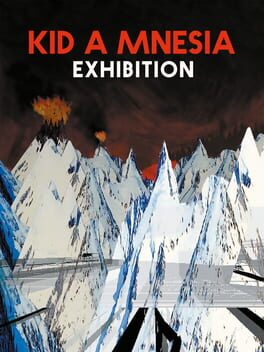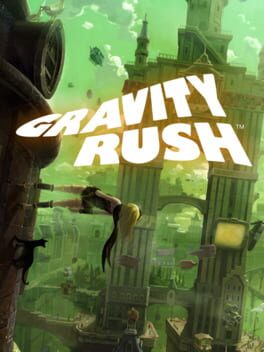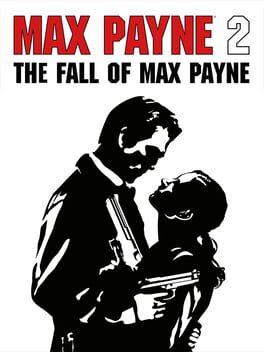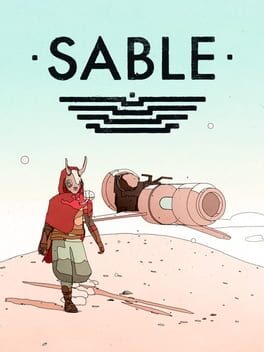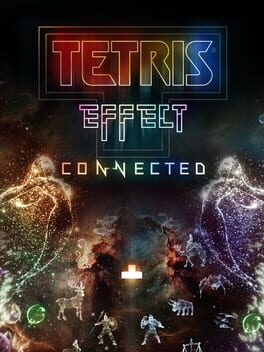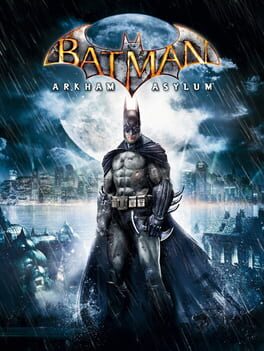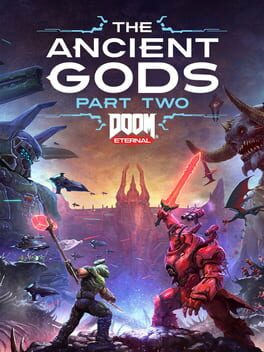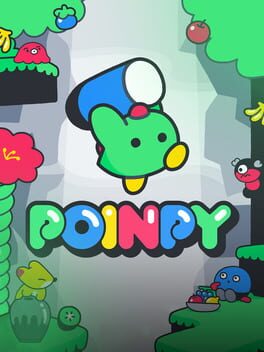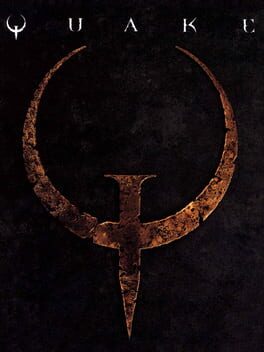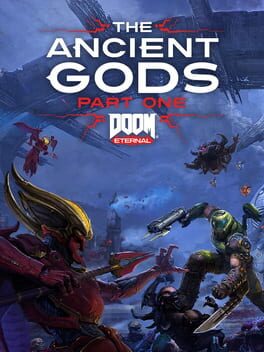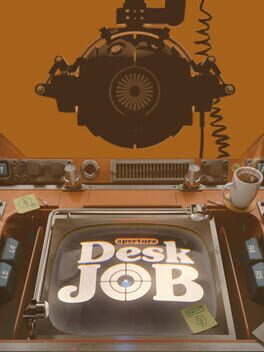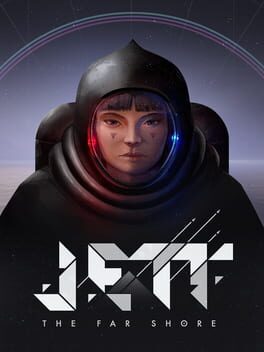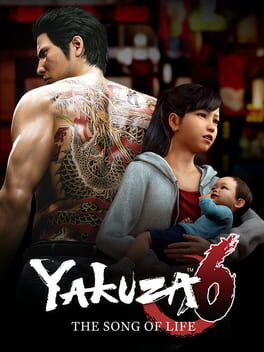lleon
2023
"And some say that it loops forever/
This road that I lose you on everytime/
And some say that it loops forever/
This road that I lose you on everytime/
And some say that it loops forever/
This road that I lose you on everytime/
And some say that it loops forever/
This road that I lose you on everytime/
And some say that it loops forever/
This road that I lose you on everytime/
And some say that it loops forever/
This road that I lose you on everytime/
And some say that it loops forever/
This road that I lose you on everytime/
And some say that it loops forever/
This road that I lose you on everytime/
And some say that it loops forever/
This road that I lose you on everytime/
And some say that it loops forever/
This road that I lose you on everytime/
And some say that it loops forever/
This road that I lose you on everytime/
And some say that it loops forever/
This road that I lose you on everytime/
And some say that it loops forever/
This road that I lose you on everytime/"
This road that I lose you on everytime/
And some say that it loops forever/
This road that I lose you on everytime/
And some say that it loops forever/
This road that I lose you on everytime/
And some say that it loops forever/
This road that I lose you on everytime/
And some say that it loops forever/
This road that I lose you on everytime/
And some say that it loops forever/
This road that I lose you on everytime/
And some say that it loops forever/
This road that I lose you on everytime/
And some say that it loops forever/
This road that I lose you on everytime/
And some say that it loops forever/
This road that I lose you on everytime/
And some say that it loops forever/
This road that I lose you on everytime/
And some say that it loops forever/
This road that I lose you on everytime/
And some say that it loops forever/
This road that I lose you on everytime/
And some say that it loops forever/
This road that I lose you on everytime/"
Say goodbye to the music video, say hello to interactive exhibitions.
Kid A is one of the most influential music albums of all time. Amnesiac, largely regarded as its "little brother" is also pretty good, sprung from the sessions for the same music. Together, they form the Kid A Mnesia combo, a sort of double LP about paranoia, loss, death, memory, politics and regret.
The thing about those albums is that I can't feel I can really say much about them that hasn't been said before. I discovered Radiohead at the age of 16 and since then they have been every step of the way in my life. I've sought comfort in their music as it (maybe sadly) speaks to me in a way no other music does.
Diving into the Exhibition is a way of contemplating this era of Radiohead in a way it can't be experienced in any other medium. I've always imagined an animated feature of Kid A, which trembled as my sight was poured by the labyrinths of memory in the Exhibition. Something that really shocked me since I'm a game designer and stuff.
The Exhibition, as I said, is a labyrinth where images and sounds converge at different points to not only show Donwood and Yorke's art, but to immerse you in imposible places. Galleries floating in the air, rooms made up of paper that re-arranges itself and giant monolithic empty creatures wandering about the place searching for meaning.
The highlight is maybe when you step inside the pyramid and a trio of songs pursue, but everything else is just as creative and imaginative. Call this what you want, game, exhibition, interactive piece, but the fact is that Yorke, Godrich and Donwood saw the possibilities of space representation and dynamic audio to bring to life this music as it never has been. To step into the gallery is to step in a world of paranoia and the minds of some of the most interesting minds of our generation.
Simply amazing!
Kid A is one of the most influential music albums of all time. Amnesiac, largely regarded as its "little brother" is also pretty good, sprung from the sessions for the same music. Together, they form the Kid A Mnesia combo, a sort of double LP about paranoia, loss, death, memory, politics and regret.
The thing about those albums is that I can't feel I can really say much about them that hasn't been said before. I discovered Radiohead at the age of 16 and since then they have been every step of the way in my life. I've sought comfort in their music as it (maybe sadly) speaks to me in a way no other music does.
Diving into the Exhibition is a way of contemplating this era of Radiohead in a way it can't be experienced in any other medium. I've always imagined an animated feature of Kid A, which trembled as my sight was poured by the labyrinths of memory in the Exhibition. Something that really shocked me since I'm a game designer and stuff.
The Exhibition, as I said, is a labyrinth where images and sounds converge at different points to not only show Donwood and Yorke's art, but to immerse you in imposible places. Galleries floating in the air, rooms made up of paper that re-arranges itself and giant monolithic empty creatures wandering about the place searching for meaning.
The highlight is maybe when you step inside the pyramid and a trio of songs pursue, but everything else is just as creative and imaginative. Call this what you want, game, exhibition, interactive piece, but the fact is that Yorke, Godrich and Donwood saw the possibilities of space representation and dynamic audio to bring to life this music as it never has been. To step into the gallery is to step in a world of paranoia and the minds of some of the most interesting minds of our generation.
Simply amazing!
2012
I agree with many sentiments surrounding this game. From the baddest bad (a disjointed story, occasionally clunky controls, gimmicks that would be better off cut off or had some workaround) to the best of the best (an amazing soundtrack, jaw-dropping visuals, interesting narrative concepts).
There's simply no denying this game has a lot of heart and soul poured into it. It's also interesting to see that even though this game is so far removed from Silent Hill in many aspects, Keiichiro Toyama still manages to print his presence into many aspects of this that call back to his 1999 debut (dreams, reality, society gone wrong, etcetera).
Even though this game compelled me enough to get the platinum trophy and to be interested in playing its sequel, there's no denying its shortcomings, but it is rare for me that a videogame draws me so much into its world, characters and story, even when not being a coherent whole and not solving practically anything it sets up in the beginning.
Bottom line: Very recommended! Can't wait to play the second one on the PS4.
There's simply no denying this game has a lot of heart and soul poured into it. It's also interesting to see that even though this game is so far removed from Silent Hill in many aspects, Keiichiro Toyama still manages to print his presence into many aspects of this that call back to his 1999 debut (dreams, reality, society gone wrong, etcetera).
Even though this game compelled me enough to get the platinum trophy and to be interested in playing its sequel, there's no denying its shortcomings, but it is rare for me that a videogame draws me so much into its world, characters and story, even when not being a coherent whole and not solving practically anything it sets up in the beginning.
Bottom line: Very recommended! Can't wait to play the second one on the PS4.
2021
Hay mucho que decir sobre Sable, ya que definitivamente no es un juego común. Aunque porta con gran orgullo sus influencias de The Legend of Zelda en cuanto a jugabilidad y experiencia, el arte de Moebius en cuanto a visuales, y las películas de Ghibli así como Dune en el terreno de las sensibilidades temáticas y narrativas, Sable logra hacer una obra muy única a partir de todo ello, y principalmente se debe a un diseño narrativo tan propositivo y especial.
Encarnas al personaje homónimo, cuyo nombre quiere decir arena: como la que fluye de un lugar a otro sin un paradero final. Todo el juego se contextualiza en un ritual que trata sobre descubrir quién eres, en forma de máscaras dadas al perseguir ciertos objetivos, generando así un juego en el que la forma de alcanzar el objetivo final depende totalmente del jugador a partir de ciertos detonantes, todos completamente opcionales a excepción del tutorial y el final. En este sentido, Sable expande mucho en el diseño abierto que proponía Breath of the Wild en 2017, esta vez haciéndolo más personal, más enfocado y a la vez más abierto de cierta forma. Aunque el final será igual para todos, tendrá una carga significativa diferente para cada jugador, haciendo que en esencia, el final cambie totalmente depende de todo el recorrido anterior.
Como en Breath of the Wild, el mayor talón de Aquiles del juego se presenta en forma de la pérdida de la novedad que se puede volver aparente tras unas cuantas horas. Es claro que Sable le gustaría ser mucho más: poder presentar más máscaras, un escenario más grande, una aventura más extensa. ¿Al final sería un mejor juego? Lo dudo, porque la experiencia seguiría siendo la misma, y finalmente, es el jugador el que decidiría cuándo poner fin al mismo como en el juego que ya se nos presenta, solamente que con más opciones de dónde tirar.
Como un viaje de "coming-of-age" o autodescubrimiento, es probablemente de lo mejor que he visto en un videojuego. En vez de narrarlo, como en un Life is Strange, Sable te deja vivirlo en carne propia, y como diría un amigo que igual lo jugó, aún al final, el juego te dice que probablemente la vida te siga presentando muchas sorpresas y que en cualquier otro momento podrías hacer otro "Gliding" (léase: crisis de la mediana edad). Los diálogos, tan cuidados y hermosos, te van dando pinceladas de los pensamientos ajenos, tan distintos el uno del otro, que en su totalidad te dan distintas formas de entender el mundo, sintetizadas finalmente en las máscaras -personalidades, vivencias- varias que puedes obtener.
Visualmente complementa mucho la utilización de shaders que remiten a los trabajos del aclamado artista francés Moebius, aunque no es únicamente por ello que el juego se puede tildar de hermoso. Sable es bello por su música, por la arquitectura, por el diseño de escenarios, personajes, fauna, flora; por sus personajes, por todo lo que implica el viaje y cómo se ve trasladado a mecánicas muy simples pero donde no se necesita mucho más para transmitir lo que representa el viaje de la vida. Fuera combates, fuera violencia. Solo tenemos que ayudar a los demás, explorar y deambular. Con menos verbos que un Zelda, creo que presenta una experiencia mucho más interesante—¿mejor? no necesariamente, pero definitivamente me interesa mucho qué más puede hacer Shedworks a partir de esta ópera prima.
Finalmente, Sable trata de escoger, o sobre no escoger. Con un lore algo predicible—hasta genérico, nos contextualiza con que (spoilers ligeros), prácticamente la vida en el planeta donde ocurre todo es algo así como un accidente, o como algo que tal vez nunca debió ser. Sable trata sobre la convivencia entre humanos, naturaleza y tecnología, y el cómo todo está en simbiosis en un entorno a la vez arcaico como artificial, pero que en esa naturaleza fabricada, es donde Sable—tú—te has de encontrar. Las condiciones en las que nacemos se nos han dado, y no podemos modificarlas, pero podemos entenderlas y a partir de ahí saber cómo podemos encajar en este mundo y seguir creciendo.
Sable es una grandiosa experiencia. Uno de los mejores videojuegos que he jugado en memoria reciente y uno que no dudo en recomendar a absolutamente todo el mundo para escuchar sus experiencias tan únicas que seguro tendrán. No terminé de explorar absolutamente todo lo que el mundo tenía que dar, pero en las 12 horas que pasé en Midden, siento que extraje lo que el juego tenía que darme, y tal vez al final, como dicen en el epílogo del juego, no me siento más sabio o más inteligente, pero sí me hizo reflexionar sobre mi lugar en este mundo tan grande, y a la vez, tan pequeño en el que vivimos todos.
Encarnas al personaje homónimo, cuyo nombre quiere decir arena: como la que fluye de un lugar a otro sin un paradero final. Todo el juego se contextualiza en un ritual que trata sobre descubrir quién eres, en forma de máscaras dadas al perseguir ciertos objetivos, generando así un juego en el que la forma de alcanzar el objetivo final depende totalmente del jugador a partir de ciertos detonantes, todos completamente opcionales a excepción del tutorial y el final. En este sentido, Sable expande mucho en el diseño abierto que proponía Breath of the Wild en 2017, esta vez haciéndolo más personal, más enfocado y a la vez más abierto de cierta forma. Aunque el final será igual para todos, tendrá una carga significativa diferente para cada jugador, haciendo que en esencia, el final cambie totalmente depende de todo el recorrido anterior.
Como en Breath of the Wild, el mayor talón de Aquiles del juego se presenta en forma de la pérdida de la novedad que se puede volver aparente tras unas cuantas horas. Es claro que Sable le gustaría ser mucho más: poder presentar más máscaras, un escenario más grande, una aventura más extensa. ¿Al final sería un mejor juego? Lo dudo, porque la experiencia seguiría siendo la misma, y finalmente, es el jugador el que decidiría cuándo poner fin al mismo como en el juego que ya se nos presenta, solamente que con más opciones de dónde tirar.
Como un viaje de "coming-of-age" o autodescubrimiento, es probablemente de lo mejor que he visto en un videojuego. En vez de narrarlo, como en un Life is Strange, Sable te deja vivirlo en carne propia, y como diría un amigo que igual lo jugó, aún al final, el juego te dice que probablemente la vida te siga presentando muchas sorpresas y que en cualquier otro momento podrías hacer otro "Gliding" (léase: crisis de la mediana edad). Los diálogos, tan cuidados y hermosos, te van dando pinceladas de los pensamientos ajenos, tan distintos el uno del otro, que en su totalidad te dan distintas formas de entender el mundo, sintetizadas finalmente en las máscaras -personalidades, vivencias- varias que puedes obtener.
Visualmente complementa mucho la utilización de shaders que remiten a los trabajos del aclamado artista francés Moebius, aunque no es únicamente por ello que el juego se puede tildar de hermoso. Sable es bello por su música, por la arquitectura, por el diseño de escenarios, personajes, fauna, flora; por sus personajes, por todo lo que implica el viaje y cómo se ve trasladado a mecánicas muy simples pero donde no se necesita mucho más para transmitir lo que representa el viaje de la vida. Fuera combates, fuera violencia. Solo tenemos que ayudar a los demás, explorar y deambular. Con menos verbos que un Zelda, creo que presenta una experiencia mucho más interesante—¿mejor? no necesariamente, pero definitivamente me interesa mucho qué más puede hacer Shedworks a partir de esta ópera prima.
Finalmente, Sable trata de escoger, o sobre no escoger. Con un lore algo predicible—hasta genérico, nos contextualiza con que (spoilers ligeros), prácticamente la vida en el planeta donde ocurre todo es algo así como un accidente, o como algo que tal vez nunca debió ser. Sable trata sobre la convivencia entre humanos, naturaleza y tecnología, y el cómo todo está en simbiosis en un entorno a la vez arcaico como artificial, pero que en esa naturaleza fabricada, es donde Sable—tú—te has de encontrar. Las condiciones en las que nacemos se nos han dado, y no podemos modificarlas, pero podemos entenderlas y a partir de ahí saber cómo podemos encajar en este mundo y seguir creciendo.
Sable es una grandiosa experiencia. Uno de los mejores videojuegos que he jugado en memoria reciente y uno que no dudo en recomendar a absolutamente todo el mundo para escuchar sus experiencias tan únicas que seguro tendrán. No terminé de explorar absolutamente todo lo que el mundo tenía que dar, pero en las 12 horas que pasé en Midden, siento que extraje lo que el juego tenía que darme, y tal vez al final, como dicen en el epílogo del juego, no me siento más sabio o más inteligente, pero sí me hizo reflexionar sobre mi lugar en este mundo tan grande, y a la vez, tan pequeño en el que vivimos todos.
1993
I hadn't replayed this game for a long time. Doing so after having been watching a couple of Batman films, I can safely this isn't really a story ABOUT Batman, but a story about BEING Batman, which is "logical" this being the first succesful Batman game adaptation. Arkham Asylum needed to be like this: a proof of concept that the superhero can actually work in a videogame format before diving more deeply into a narrative in subsequent games (which I should replay sometime).
I had a more fond memory of this game, to be honest. In my head it was a metroidvania-like with heavy elements of horror and a great atmosphere. The atmosphere's still there, but to my younger mind many things about this really scared me and now don't. The metroidvania elements are pretty simple and the backtracking's really just an excuse to get Riddler trophies. The horror aspects may sometimes still be there (especially with the almost brilliant Scarecrow scenes) but could be stronger (though that would be an entirely different Batman experience, which I think shines more brightly on the original Arkham Asylum 1989 comic).
The boss fights are okay, the combat gets harder and somewhat more interesting but overall is pretty basic and ends up being a "smash-the-button" thing which relies more on timing than strategy. Stealth sections can also being pretty formulaic if you know what you're doing and the 3D platforming can get stale after a while. Even so, I think the game executes pretty well all of its elements to sum up to a pretty enjoyable experience. This is a game for both Batman diehards as well as Batman newcomers. I like the idea of the Asylum being some kind of museum of many iconic villains and moments of the Batman comics which can introduce you to many characters you may have been unaware of.
In the end, it's a solid game, though a much more simpler game than I remembered. It doesn't have really much going for it except for its thematic elements. Replace Batman for another licence and probably this would've been forgotten pretty quickly. Is it a bad thing? Not really.
Definetely the highlight of the game is the first half or so. It starts losing its punch somewhere around the middle even though it still has some interesting parts scattered around. Overall, would still recommend it, but wouldn't any longer say it's a "brilliant one".
I had a more fond memory of this game, to be honest. In my head it was a metroidvania-like with heavy elements of horror and a great atmosphere. The atmosphere's still there, but to my younger mind many things about this really scared me and now don't. The metroidvania elements are pretty simple and the backtracking's really just an excuse to get Riddler trophies. The horror aspects may sometimes still be there (especially with the almost brilliant Scarecrow scenes) but could be stronger (though that would be an entirely different Batman experience, which I think shines more brightly on the original Arkham Asylum 1989 comic).
The boss fights are okay, the combat gets harder and somewhat more interesting but overall is pretty basic and ends up being a "smash-the-button" thing which relies more on timing than strategy. Stealth sections can also being pretty formulaic if you know what you're doing and the 3D platforming can get stale after a while. Even so, I think the game executes pretty well all of its elements to sum up to a pretty enjoyable experience. This is a game for both Batman diehards as well as Batman newcomers. I like the idea of the Asylum being some kind of museum of many iconic villains and moments of the Batman comics which can introduce you to many characters you may have been unaware of.
In the end, it's a solid game, though a much more simpler game than I remembered. It doesn't have really much going for it except for its thematic elements. Replace Batman for another licence and probably this would've been forgotten pretty quickly. Is it a bad thing? Not really.
Definetely the highlight of the game is the first half or so. It starts losing its punch somewhere around the middle even though it still has some interesting parts scattered around. Overall, would still recommend it, but wouldn't any longer say it's a "brilliant one".
This review contains spoilers
No creo que puede haber mejor final a la saga de DOOM (al menos de momento, supongo) que literalmente asesinar al Creador de la realidad.
El DLC en su totalidad es un poco lo que ya comenté con respecto a la primera parte: es el juego base menos la exploración y aumentando a la quinta potencia los enfrentamientos. El DLC tomando ambas partes como el todo, me parece un buen recurso para darle un cierre a toda la historia, que, aunque no me deja de parecer algo que sobra mucho, temáticamente me agrada mucho y creo que efectivamente, es un buen último clavo sobre ese ataúd.
¡He terminado con los demonios!
¡He terminado con DOOM!
Por ahora.
El DLC en su totalidad es un poco lo que ya comenté con respecto a la primera parte: es el juego base menos la exploración y aumentando a la quinta potencia los enfrentamientos. El DLC tomando ambas partes como el todo, me parece un buen recurso para darle un cierre a toda la historia, que, aunque no me deja de parecer algo que sobra mucho, temáticamente me agrada mucho y creo que efectivamente, es un buen último clavo sobre ese ataúd.
¡He terminado con los demonios!
¡He terminado con DOOM!
Por ahora.
2022
Gran juego de móviles. Creo que me sigue gustando más Downwell, pero Poinpy es un gran ejercicio en eso que llamamos "Game Feel", animaciones y color. Es uno de esos juegos que es fácil de entender y jugar, pero difícil de dominar. Aprecio que tenga un final, aunque probablemente siga jugando al modo endless de vez en cuando, porque se vuelve muy adictivo.
1996
Quake es la verdadera secuela de DOOM en muchos sentidos. Mientras que DOOM II iteraba en el diseño de niveles, armas y enemigos, Quake cambia las reglas del juego permitiendo entornos tridimensionales "reales", e importante: el poder voltear en el eje Y. Esto abre muchas oportunidades en el diseño de niveles: donde a mi parecer, lo más interesante se encuentra en el tercer capítulo. En el resto va y viene. El problema de Quake es que se queda únicamente en ser un juego entretenido y que no trasciende más allá de ello. La atmósfera está muy bien cuidada, y como diría Errant Signal en YouTube, es una "mood piece". Mientras que DOOM atrapaba inmediatamente por lo icónico de su simbología, a Quake le cuesta trabajo encontrar su camino, tanto, que en ocasiones parece, realmente, DOOM II (en el sentido de ser una continuación).
Creo que es una pieza imperdible para los fans de la historia de videojuegos / historia de los FPS. Pero a día de hoy no me parece que se sostenga como un juego tan interesante como aún lo puede hacer DOOM. Aún así, hay mucho material aquí que me parece increíble. Lástima que el desarrollo del juego fue tan caótico como he leído por ahí.
Creo que es una pieza imperdible para los fans de la historia de videojuegos / historia de los FPS. Pero a día de hoy no me parece que se sostenga como un juego tan interesante como aún lo puede hacer DOOM. Aún así, hay mucho material aquí que me parece increíble. Lástima que el desarrollo del juego fue tan caótico como he leído por ahí.
El primer DLC de DOOM Eternal: The Ancient Gods, es en pocas palabras, más DOOM Eternal. Por un lado me parece una expansión muy acertada: enfocándose en lo que mejor sabe hacer el juego, que es su combate. Por otro, siento que pierde una capa que a mi parecer hacía muy interesante a Eternal: su sistema de progresión. Al no tener realmente mucho a dónde ir como personaje, Doom Slayer es casi literalmente un Dios (sin contar los desarrollos de la historia), y en esa línea, el juego empieza donde terminas con Eternal: teniendo todas las mejoras posibles. Esto hace que la poca exploración que tenía Eternal se vea incluso más reducida en esta expansión. Aún hay desafíos y otras cosas, pero pierden sentido pues no aportan realmente a nada más que a ... desbloquear... skins. The Ancient Gods entonces se convierte en una galería de matanza pasando de arena en arena, recordando un poco más al flujo presente en DOOM 2016.
Siempre me cuesta trabajo valorar un DLC, y más cuando está dividido en dos partes, así que esta entrada se queda sin valoración. Solo diré que aunque me parece que no es tan sustancial, aún así recomiendo esta pieza de DOOM aunque solo sea por jugar a todas las entregas de DOOM al 100%.
Siempre me cuesta trabajo valorar un DLC, y más cuando está dividido en dos partes, así que esta entrada se queda sin valoración. Solo diré que aunque me parece que no es tan sustancial, aún así recomiendo esta pieza de DOOM aunque solo sea por jugar a todas las entregas de DOOM al 100%.
2022
2021
This is clearly not a game for everyone. Regarding the tree most prominent criticisms I've read about this game:
1) "The controls are bad". Well, personally, after a while, I found myself mastering them and didn't have too much of a problem navigating the world. Games usually are about mastering things and having the patiente and resillience to pull through.
2) Which takes me to: "this game is boring". Huh? Did we play the same thing? I don't know, this isn't a game with EXPLOSIONS or too much going on in the narrative, but, while it takes its time to really kick things off, it managed to pull me straight into its atmosphere and I found myself playing in sessions of 2-3 hours, something I don't usually do for most games now-a-days.
3) The story is "confusing". Well, I get this game is somewhat ambiguous about some of its elements, but I've read and watched enough sci-fi to connect the dots and get where this game was going. I think it asks interesting questions about religion, faith, perseverance and fatalism all at once. The ending is open-ended, which is something I really like, and I think your intepretation of its tone will depend on your stance and belief on what just happened throughout the game.
Overall, I think this is a really interesting game, and whether you'll like it or not, will depend on the fact if you like slow-burning games, are patient enough and if the themes and story resonate with you.
I have some criticisms about the structure of the game being too linear for the systems which it proposes, that could make for a more open-ended exeperience, but when I learned to love the game for what it is, it just clicked immediately for me.
I really hope this games finds more people who can appreciate it! It really deserves it and it's clear a lot of love and work went into it.
1) "The controls are bad". Well, personally, after a while, I found myself mastering them and didn't have too much of a problem navigating the world. Games usually are about mastering things and having the patiente and resillience to pull through.
2) Which takes me to: "this game is boring". Huh? Did we play the same thing? I don't know, this isn't a game with EXPLOSIONS or too much going on in the narrative, but, while it takes its time to really kick things off, it managed to pull me straight into its atmosphere and I found myself playing in sessions of 2-3 hours, something I don't usually do for most games now-a-days.
3) The story is "confusing". Well, I get this game is somewhat ambiguous about some of its elements, but I've read and watched enough sci-fi to connect the dots and get where this game was going. I think it asks interesting questions about religion, faith, perseverance and fatalism all at once. The ending is open-ended, which is something I really like, and I think your intepretation of its tone will depend on your stance and belief on what just happened throughout the game.
Overall, I think this is a really interesting game, and whether you'll like it or not, will depend on the fact if you like slow-burning games, are patient enough and if the themes and story resonate with you.
I have some criticisms about the structure of the game being too linear for the systems which it proposes, that could make for a more open-ended exeperience, but when I learned to love the game for what it is, it just clicked immediately for me.
I really hope this games finds more people who can appreciate it! It really deserves it and it's clear a lot of love and work went into it.
Qué final tan más hermoso. No me imagino una mejor forma de cerrar una saga de siete juegos.
El juego en general me parece bueno, no el mejor de los Yakuza, pero lo que tiene es que es una experiencia mucho más contenida. Creo que me gana más la ambición que tienen Yakuza 5 y Yakuza 0, y en ese aspecto me parece un poco desaprovechado que los sistemas secundarios en este juego, aunque están relacionados entre ellos, al juego le da miedo integrarlos con el gameplay loop central, cosa que intenta Yakuza 5 y perfecciona el 0. Sin embargo, este juego tiene momentos tan bonitos, tanto en lo secundario, como en lo principal, que a mi parece lo compensan.
En cierto punto se me hicieron muy cansados los mismos tropos que llevo viendo por tantos juegos, y realmente en algunos momentos aprecié que este sea el "último" juego de la saga. Aunque los Yakuza sigan, no creo que vaya a embarcarme en el resto, al menos por un tiempo. Viendo este juego por lo que es, creo que cumple su propósito.
Los últimos 20 minutos me parecen un gran epílogo a una historia que llevaba cultivándose por más de 10 años.
Gracias por todo.
El juego en general me parece bueno, no el mejor de los Yakuza, pero lo que tiene es que es una experiencia mucho más contenida. Creo que me gana más la ambición que tienen Yakuza 5 y Yakuza 0, y en ese aspecto me parece un poco desaprovechado que los sistemas secundarios en este juego, aunque están relacionados entre ellos, al juego le da miedo integrarlos con el gameplay loop central, cosa que intenta Yakuza 5 y perfecciona el 0. Sin embargo, este juego tiene momentos tan bonitos, tanto en lo secundario, como en lo principal, que a mi parece lo compensan.
En cierto punto se me hicieron muy cansados los mismos tropos que llevo viendo por tantos juegos, y realmente en algunos momentos aprecié que este sea el "último" juego de la saga. Aunque los Yakuza sigan, no creo que vaya a embarcarme en el resto, al menos por un tiempo. Viendo este juego por lo que es, creo que cumple su propósito.
Los últimos 20 minutos me parecen un gran epílogo a una historia que llevaba cultivándose por más de 10 años.
Gracias por todo.

